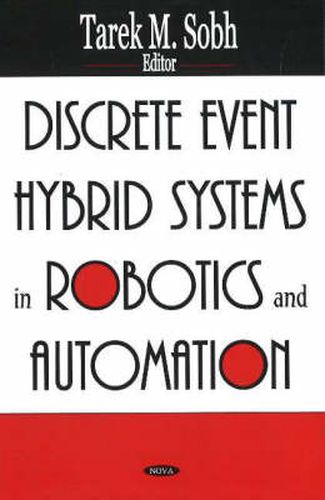Readings Newsletter
Become a Readings Member to make your shopping experience even easier.
Sign in or sign up for free!
You’re not far away from qualifying for FREE standard shipping within Australia
You’ve qualified for FREE standard shipping within Australia
The cart is loading…






The underlying mathematical representation of complex robotic and manufacturing computer-controlled systems is still insufficient to create a set of models which accurately captures the dynamics of the system over the entire range of system operation. We remain in a situation where we must trade of the accuracy of our models with the manageability of the models. Closed-form solutions of mathematical models are almost exclusively limited to linear system models. Computer simulation of non-linear hybrid and discrete-event models provide a means for online design of robotic control systems. Guarantees of system performance are limited to those regions where the robustness conditions apply. These conditions may not apply during start-up and shutdown or during periods of anomalous operation. Attempts have been made to model low and high-level system changes in automated and robotic systems as discrete event dynamic systems, DEDS, and hybrid systems. Several attempts to improve modelling capabilities are focused on mapping the continuous world into a discrete one. However, repeated results are available which indicate that large interactive systems evolve into states where minor events can lead to a catastrophe. Discrete event and hybrid systems have been used in the manufacturing and automation domains to model system state changes within a process. Timed and untimed petri nets and state automata in addition to Markovian-stochastic perturbation and other models have been used extensively to model and control automated manufacturing systems. High level DEDS controllers have also been to guide the behaviour of robots based on sensory outputs. This book presents a collection of problems, modelling strategies, analysis tools, and theoretical frameworks for discrete events and hybrid systems within the robotics and automation domain.
$9.00 standard shipping within Australia
FREE standard shipping within Australia for orders over $100.00
Express & International shipping calculated at checkout
The underlying mathematical representation of complex robotic and manufacturing computer-controlled systems is still insufficient to create a set of models which accurately captures the dynamics of the system over the entire range of system operation. We remain in a situation where we must trade of the accuracy of our models with the manageability of the models. Closed-form solutions of mathematical models are almost exclusively limited to linear system models. Computer simulation of non-linear hybrid and discrete-event models provide a means for online design of robotic control systems. Guarantees of system performance are limited to those regions where the robustness conditions apply. These conditions may not apply during start-up and shutdown or during periods of anomalous operation. Attempts have been made to model low and high-level system changes in automated and robotic systems as discrete event dynamic systems, DEDS, and hybrid systems. Several attempts to improve modelling capabilities are focused on mapping the continuous world into a discrete one. However, repeated results are available which indicate that large interactive systems evolve into states where minor events can lead to a catastrophe. Discrete event and hybrid systems have been used in the manufacturing and automation domains to model system state changes within a process. Timed and untimed petri nets and state automata in addition to Markovian-stochastic perturbation and other models have been used extensively to model and control automated manufacturing systems. High level DEDS controllers have also been to guide the behaviour of robots based on sensory outputs. This book presents a collection of problems, modelling strategies, analysis tools, and theoretical frameworks for discrete events and hybrid systems within the robotics and automation domain.